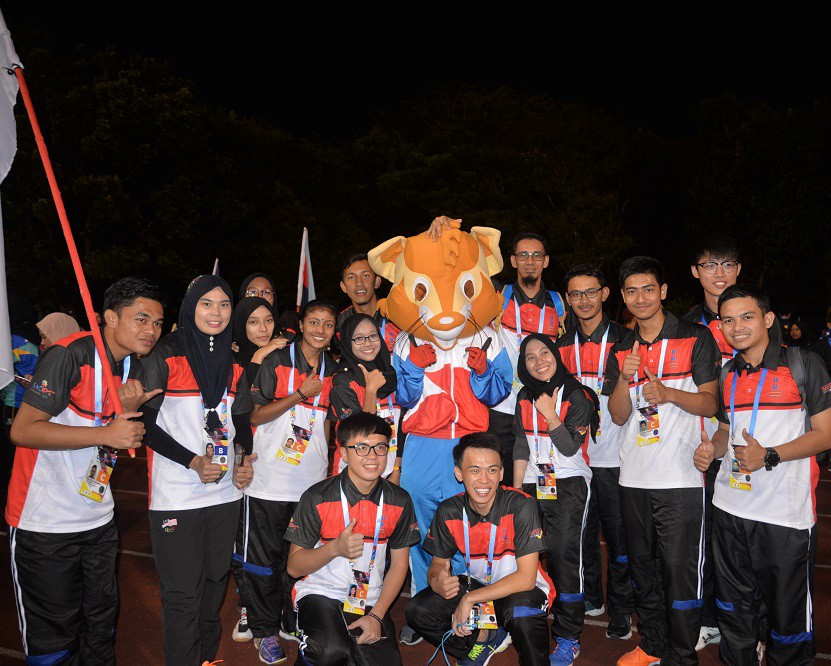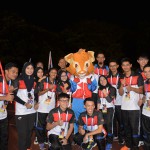Parents can play a crucial role in talent management by providing support and encouragement to their children, as well as playing an active role in their development as athletes. Parental involvement can positively influence an athlete's motivation, self-esteem, and overall performance. Parents can help their children build essential life skills, such as discipline, time management, and goal setting, that are essential for success in sports and beyond.
Furthermore, parents can provide financial support for their children's sporting activities and training, which can be a significant barrier to talent development in sports, especially for families from lower socio-economic backgrounds. This support can enable talented athletes to access quality coaching, training facilities, and equipment.
The National Sports Council (NSC) is the primary organization responsible for talent identification and development in sports in Malaysia. The NSC was established in 1971 to develop and promote sports in the country and has been instrumental in identifying and nurturing talented athletes to represent Malaysia at international competitions.
The NSC's talent identification program involves identifying potential athletes through school and state-level competitions, followed by a talent identification camp for selected athletes. The selected athletes undergo a rigorous training program under the guidance of experienced coaches and trainers to develop their skills and enhance their performance.
The NSC works closely with other related organizations, such as the Malaysian Olympic Council (MOC), the Malaysian Paralympic Council (MPC), and the National Sports Institute (NSI), to provide support to talented athletes. The MOC and MPC are responsible for preparing and sending Malaysian athletes to compete in international events, while the NSI provides scientific and medical support to athletes, including fitness assessment, sports nutrition, and sports psychology.
Despite the efforts of these organizations, there have been concerns about the effectiveness of talent identification and development programs in Malaysia. Some critics argue that the talent identification process is not comprehensive enough, and talented athletes may be overlooked due to the lack of a systematic approach. Others argue that there is a lack of coordination between different organizations involved in talent management, leading to a fragmented approach to talent development.
Various factors can affect parental involvement in talent management, including socioeconomic status and cultural beliefs. In Malaysia, these factors can have a significant impact on the level of parental involvement in talent management.
Socioeconomic status is one of the most significant factors that affect parental involvement in talent management. Families from lower socio-economic backgrounds may face financial constraints that limit their ability to provide support for their children's sporting activities and training. The cost of equipment, travel, and training can be a significant burden for families with limited financial resources. As a result, talented athletes from these backgrounds may be unable to access the necessary resources and support to develop their skills and fulfill their potential.
Cultural beliefs can also play a role in parental involvement in talent management. In some cultures, there may be a greater emphasis on academic achievement than on sports, which can discourage parents from supporting their children's sporting ambitions. Additionally, cultural beliefs around gender roles may limit the opportunities for female athletes and discourage parents from supporting their daughters' involvement in sports.
Other factors that can affect parental involvement in talent management in Malaysia include the level of awareness and understanding of the benefits of sports participation and the availability of sporting facilities and programs in the local community.
Increasing parental involvement in talent management is crucial to identifying and nurturing talented athletes in Malaysia. Here are some potential strategies to increase parental involvement:
- Educational Programs: Educational programs can help parents understand the benefits of sports participation and how they can support their children's development as athletes. These programs can be delivered in schools, community centers, and other public spaces and can be targeted at parents from different socio-economic backgrounds.
- Awareness Campaigns: Awareness campaigns can help increase awareness of the importance of sports participation and the role of parental involvement in talent management. These campaigns can be delivered through social media, TV, radio, and other media channels, and can be targeted at different age groups and communities.
- Partnership with Schools: Schools can play a significant role in promoting sports participation and talent management, and partnerships between sports organizations and schools can help to increase parental involvement. Sports organizations can work with schools to provide training programs and coaching for young athletes, while schools can encourage parents to support their children's sporting activities.
- Community Outreach: Community outreach programs can help to identify and nurture talented athletes from underprivileged backgrounds. These programs can be delivered through community centers, sports clubs, and other local organizations and can provide support and resources to talented athletes and their families.
The potential impact of these strategies on Malaysia's national talent management system could be significant. Increased parental involvement can help to identify and nurture talented athletes, reduce the financial barriers to sports participation, and create a more inclusive and diverse sporting community. Additionally, greater parental involvement can lead to a more coordinated approach to talent management, with parents, schools, and sports organizations working together to support young athletes. This can lead to more significant success for Malaysia's sports industry and contribute to the country's overall growth and development.
In conclusion, parental involvement is a crucial element of talent management in sports in Malaysia. The involvement of parents can provide young athletes with emotional, social, and financial support, which can help them to develop their skills and reach their full potential. However, there are several factors that can affect parental involvement, such as socio-economic status and cultural beliefs.
Currently, the level of parental involvement in talent management in Malaysia varies significantly, and there is a need to improve it further. To increase parental involvement, strategies such as educational programs, awareness campaigns, partnership with schools, and community outreach programs can be employed. By addressing these factors, Malaysia can enhance its national talent management system, nurture talented athletes, and achieve greater success in the sports industry.
Once again, it is essential to recognize the critical role that parents play in talent management in sports and create opportunities for them to get involved. With greater parental involvement and a more coordinated approach to talent management, Malaysia can achieve its sporting ambitions and contribute to the country's overall growth and development.










